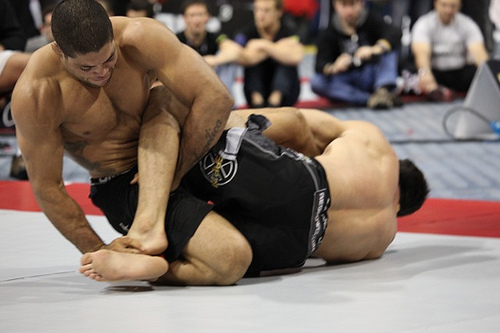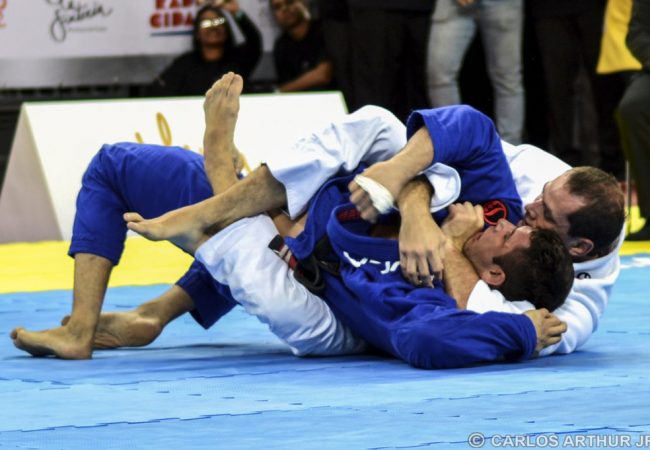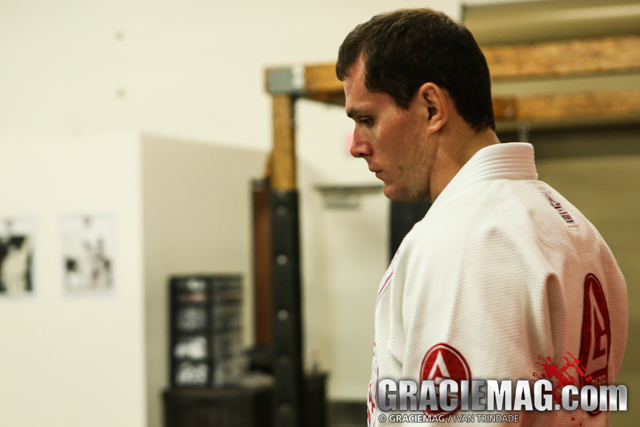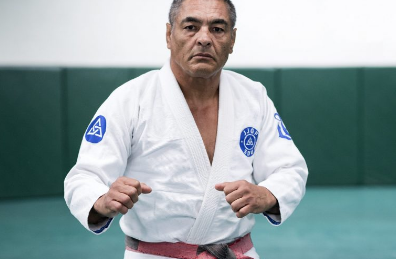
André Galvão vs. Pablo Popovitch in the absolute final of ADCC 2011. Daren Bartlett/GRACIEMAG.
In what aspect are the training routines of Rodolfo Vieira, André Galvão, Leandro Lo and your BJJ-training neighbor identical?
In the need to take a break to hydrate.
Thirst, this weakness that assails white-belts and world champions alike, is an important part of your BJJ life, and you must learn what to do with it.
How to tackle it? Pure water? Coconut water? An isotonic? What is the right time to drink? How much should you drink?
Graciemag sat down with André Galvão, the ADCC superchampion who is set to face Claudio Calasans in a superfight in this year’s installment in Finland. The Atos instructor is always alert to hydration. As soon as he made it to the absolute final in the 2011 ADCC, for instance, his first thought was about the two little bottles he’s always carrying: What will I drink before the most important fight of the event?
“There in England, before the final, I was parched — and also parched for the title,” he says. “When I fight, I always have a bottle of plain water on me and another of just carbs, such as Endurance. There are many excellent options, but I find it very good to just drink natural water. It is the thing that really cleanses your body of all impurity. Water helps with recovery, with cleaning, and it also helps remove the lactic acid from your body — that’s the acid that leaves our body in pain following hard training and competing. In training or in top-level championships, it is extremely important to remain hydrated. The body is a machine, and without water the engine can break for good. Remember: God made water with no smell, no taste, no shape and no color so that everybody would like it.”
Galvão also talked about isotonics. “I’m not a fan, because they have a lot of sugar, a wrong kind of sugar. An isotonic that contains this sugar hinders performance, causes muscle fatigue. To me what’s best is to have around a beverage with a high carb percentage — 4 grams of carbs per 1 gram of protein. This is proven to help in recovery and high-performance training. I combine that with a bigger dose of amino-acids during competitions. After all, there’s a lot more adrenaline going on, you strain much more, and you wear yourself out much more; therefore, the energy reserves have to be full — it’s better to have too much than too little.
“Water has never harmed anybody — the more you drink, the better. Better for your recovery, better for your performance in the fight, and better for curing the microlesions in your muscles. I always say, ‘Wanna have more stamina? Drink more water!’ It helps hydrate tendons and joints, and so you get less tired. But, of course, you should not drink two liters before training.
“I recommend several sips during training, and after training I suggest you drink two to three liters of water. You will urinate nonstop, but note that your urine will be crystal clear, which is a good sign. Peeing yellow is a sign you need more water in the radiator. Don’t just drink when you’re thirsty; drink all the time.”
Galvão also has some handy advice for those who can’t stand to just drink water all day. “Make some green tea with a half-lemon’s juice and top it off with twice as much water — with no sugar or sweetener, of course. Let it cool down and bring it to practice. It will add a light taste to the water, and you will be hydrated, because it’s easy to drink a full gallon of the stuff.”




